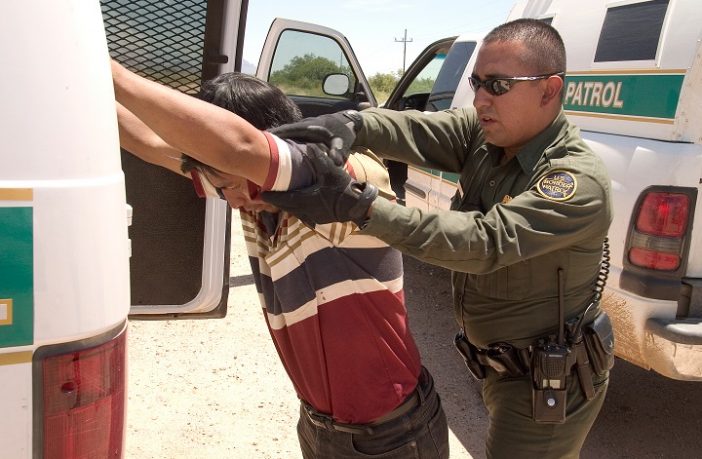A Jordanian man who smuggled at least six Yemeni nationals into the U.S. has heightened concerns about security vulnerabilities along the Mexican border.
Law enforcement sources told the San Antonio Express-News that some of the Yemenis were on terror watch lists.
Moayad Heider Mohammad Aldairi, 31, pleaded guilty this week in Texas to transporting illegal aliens for financial gain. His operation was part of an international network uncovered by Homeland Security Investigations (HSI), a division of U.S. Immigration and Customs Enforcement.
HSI agents said Aldairi planned and coordinated migrant travels through Cuba, Ecuador, Colombia, Panama, Costa Rica, Honduras, El Salvador, Guatemala and Mexico.
While a humanitarian crisis festers at the border, the Aldairi case stokes concerns about who is really coming and why. Are all the migrants turning up at the southern border attempting to escape poverty, or are terrorists hiding among the throngs?
U.S. Attorney John F. Bash of the Western District of Texas said, “We’re not only talking about Central American economic migrants or asylum seekers. We’re talking about people from anywhere in the world, including countries like Yemen that has an enormous terrorist presence — al Qaeda in the Arabian Peninsula — able to get into this country by flying to counties like Ecuador and then just crossing this border.”
“Aldairi charged just $2,000 to $6,000 a person to get into this country. Imagine someone with an organization that wants to do something nefarious in the United States. Paying $2,000 or $3,000 a person is nothing if you’re plotting a significant attack in the United States,” Bash said.
State Dept.: Southern Border is a Soft Target for Terrorists
Todd Bensman, of the Center for Immigration Studies, says, “Thousands of so-called ‘special interest aliens’ (SIAs) arriving annually from the Middle East, South Asia and North Africa — mostly without any identification or vetting — have given rise to national security worries about infiltration.”
U.S. Border Patrol Chief Raul Ortiz of the Del Rio Sector, where the six Yemenis were apprehended, said his officers have encountered illegal border crossers from 53 countries. This year, he estimated that more than 5,000 escaped capture and are unaccounted for.
Clearly, human smugglers are capitalizing on chaotic conditions at the border.
“Right now Border Patrol agents are being pulled out of the field to process family units,” Bash said. “That creates a vicious cycle because more and more people can enter undetected because we have fewer agents in the field.”
Even when arrests are made, the results aren’t necessarily comforting.
While Aldairi faces three to 10 years in prison, the six Yemenis were prosecuted for illegal entry, which is a misdemeanor carrying light penalties. They served sentences of just 14 to 20 days, and three of the six remain in the U.S. Officials would not provide details on their status or whereabouts.




